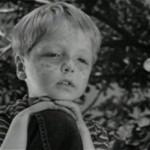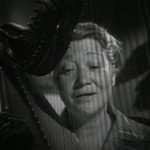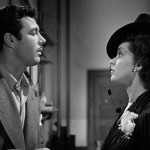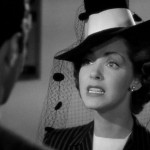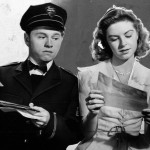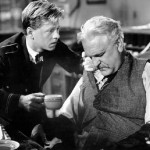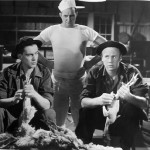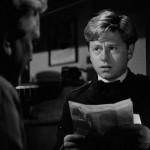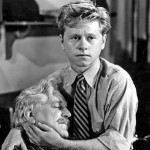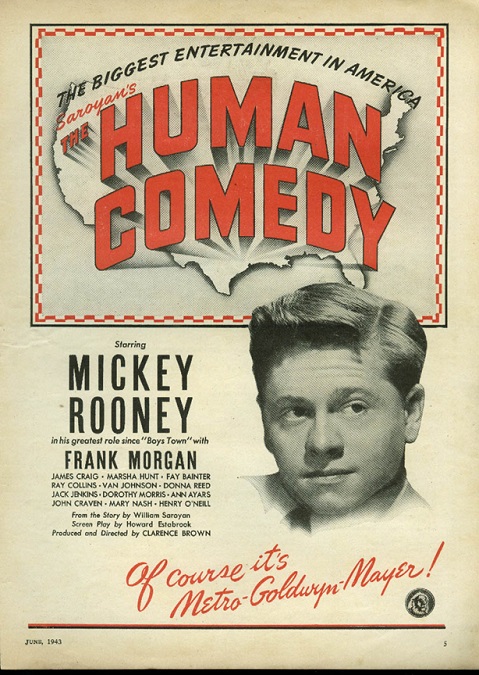
The Human Comedy – 1943
OK, stop trying to pretend that you are a movie and just give me the essays on what it means to be an American – because that was all this movie really was. I understand why this movie was made, and it wasn’t for cinematic greatness. America was in the middle of World War II, and our soldiers, our sons and husbands, were fighting and dying in a foreign land. I get it.
However, I can’t help but look at the film objectively. It was terrible. It was an obvious excuse to give a series essays on what it means to live in a free world, what it means to live side by side with your fellow human beings, the real nature of tyrants, how to deal with the death of a loved one, why it is important to do what you can for the cause of freedom, and the like. These flowery speeches would crop up over the course of the movie at seemingly random moments, delivered by random characters.
The movie’s only real saving grace was its lead actor, Mickey Rooney. He knew how to act, and did a good enough job with the script he was given. He played Homer Macauley, a high school student who was the model young citizen. He always did his homework, always excelled in athletics, loved his mother, respected his elders, prayed before every meal, had a job after school to help support his poor family since his father was dead and his older brother had gone off to war.
And that, right there, was the main plot. The rest of the film was a series of character sketches and random scenes, made up of the peripheral people in his life. Fay Bainter played his mother. Frank Morgan played his kindly old co-worker at the telegraph station. Van Johnson played his brother, Marcus. James Craig played his boss, Mr. Spangler. Donna Reed played his sister, Bess. And the list goes on.
Each person, at one time or another, has a poetic essay to give that effectively interrupts the, admittedly, sparse narrative in an attempt to either inspire the audience to join the war effort, or, at the very least, feel a pang or two of patriotism. On top of that, throw in a few traditional church hymns, sung by the US Army soldiers, and we’re done.
There just wasn’t any cohesion at all in the plot. There were entire scenes that made no sense, and characters who would show up from out of nowhere and then disappear just as quickly once their essay had been delivered. What little story there was seemed forced and predictable. And the ultra-conservative, “Golly-gee-whiz” dialogue was enough to make me roll my eyes. It was like they were going out of their way to show us a picture of what a fine, upstanding, church-going community should look like. Nobody was mean. Everybody was bursting at the seams to do their part for God and country. It was “model-citizen” overload.
But two things about the film really got really stuck in my craw. First was that it broke the cardinal rule. It committed one of the biggest sins of film-making. Cute for the sake of cute is never cute. Never. Homer’s little brother, Ulysses, played by Jack Jenkins, was a horrible actor. Not only that, but he wasn’t even cute. I have no doubt that he was supposed to be, but I’ll be honest – at first, I was afraid that his character was mentally handicapped. He always had a slack face with a vacant expression. I know he was only five years old or so, but from his first appearance on the screen, I was annoyed by his high-pitched voice, his dead eyes, and his moronic attempts to be as cute as he could for the cameras.
Second, I have to go over what I’d like the call the ridiculous “It’s a Small World” scene. There was actually a scene in which Mr. Spangler and his new bride, Diana, played by Marsha Hunt, are driving through the park. As they slowly cruise along the road, they pass a number of happy, singing, cultural stereotypes, dressed in traditional garb from their native lands, dancing to ethnic tunes. First were the Greeks, all wearing their fez hats. Next came the Mexicans, dancing the Flamenco. “Viva Mexico!” proclaims Diana, like a gringo. After that came the Armenians, identified by the “priests and the children, because that’s what they believe in.” Next, the car slowly wheeled past the Russians, who looked like they were dancing straight out of Siberia. Finally came the Swedes, bouncing around a maypole. See? We accept everybody in America. Funny, but I noticed that there were no Japanese kimonos or German lederhosen to be seen. “Ok, honey. Ride’s over. Why don’t we go to Space Mountain next?”
Good grief! I honestly can’t think of anything about The Human Comedy that made it worthy of being nominated for Best Picture. I’m sure it served its purpose as a propaganda film, but I found it ridiculous as anything but a clumsy and heavy-handed plea from Hollywood to join the war effort. There were even signs in the backgrounds (or sometimes the fore-grounds) of many scenes that said “Buy War Bonds for Victory!” Next time, chuck the story and just read me the essays. Best Picture? I think not!
